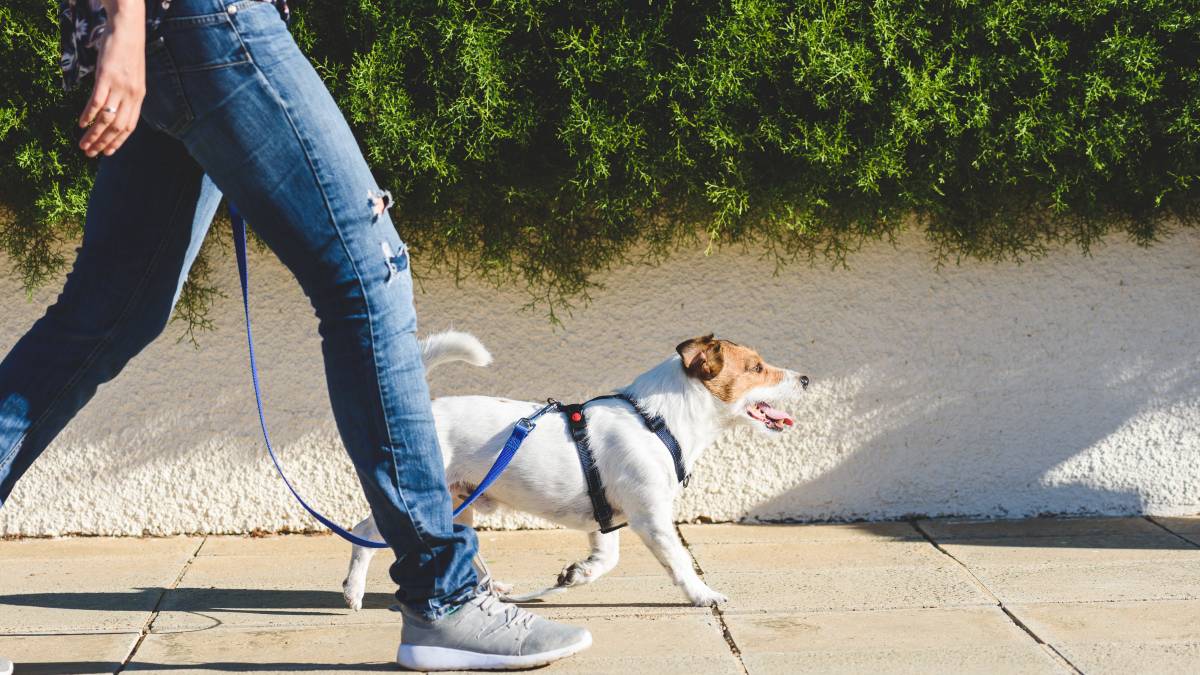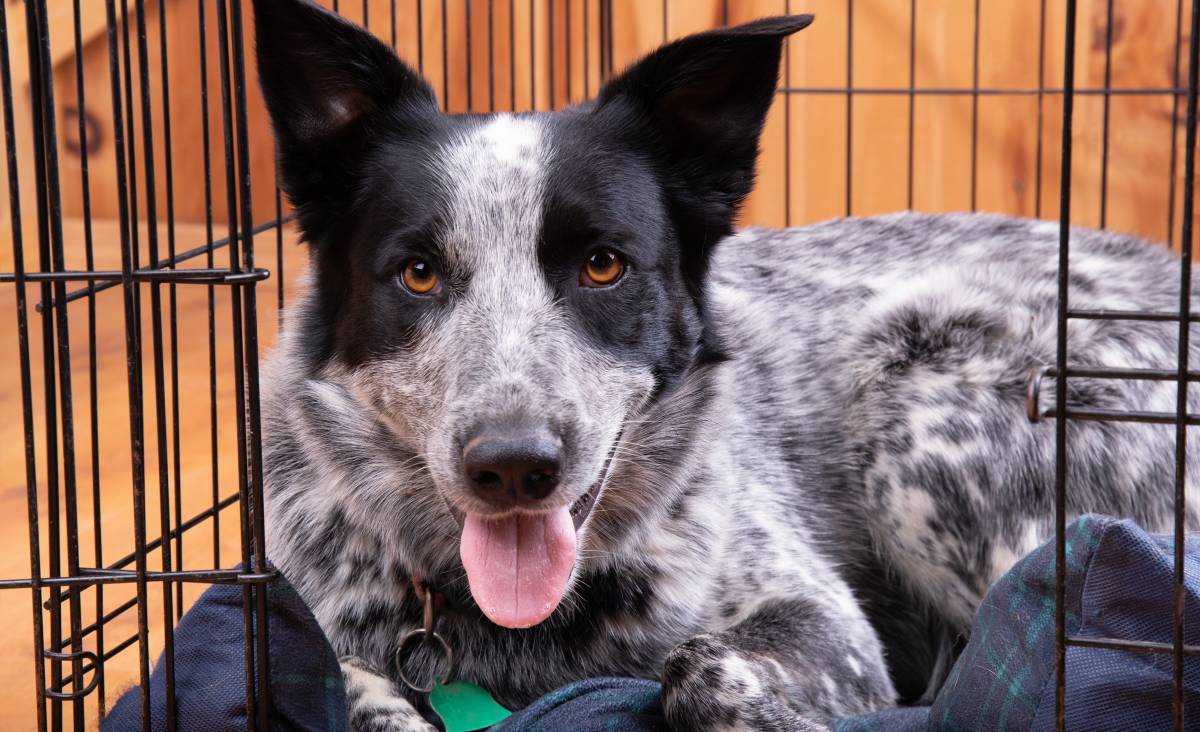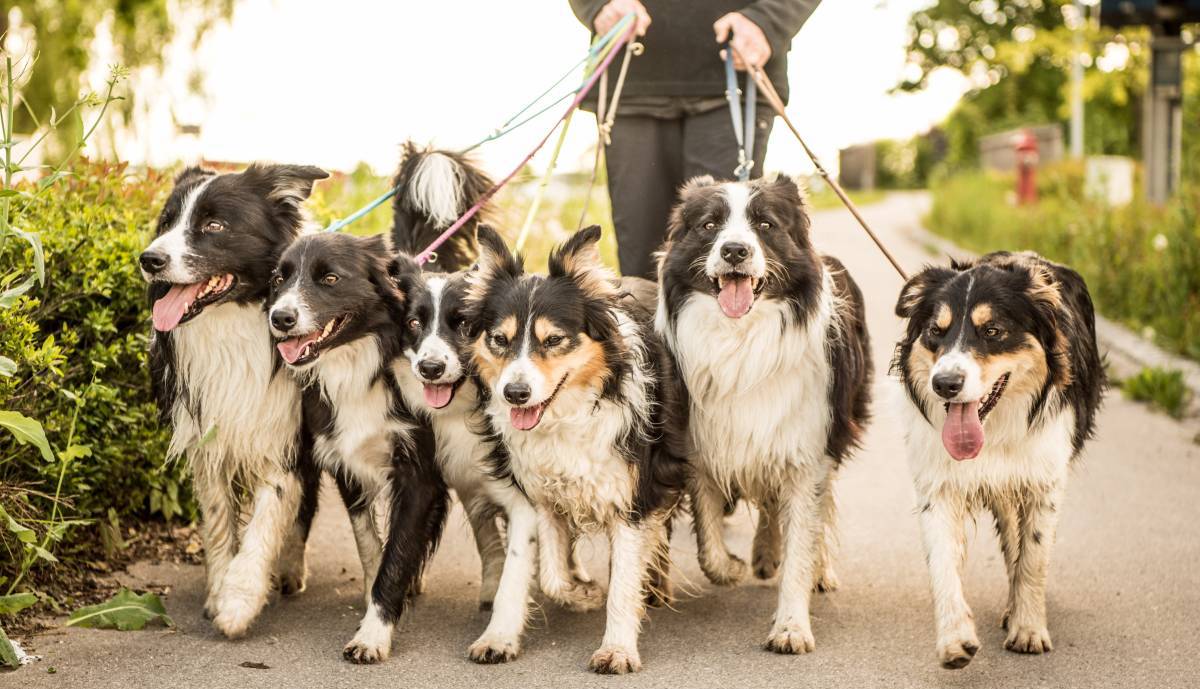- Home/
- Guides/
- Dog Training/
- How to Train a Dog to Stop Barking

Sweet silence: How to train a dog to stop barking
Is your dog barking out of boredom, separation anxiety, or something else?
Find a dog trainerLast Updated on
Just as humans are capable of terrible singing, dogs can bark non-stop. This reaction is normal for pups, but excessive barking can become a big problem in some situations. More so for your neighbours if the barking happens all day while you’re at work!
So how do you train a dog to stop barking? Stopping a dog from excessive barking requires addressing long-term behaviour and identifying why your dog barks. For example, is your dog barking out of boredom, separation anxiety, or something else?
Read on for some possible solutions for dealing with your dog’s barking and helping your fur-buddy understand why silence can indeed be golden!
How to train a dog to stop barking
Several approaches can be highly effective when coupled with basic training techniques. Try the reverse of the “speak” command and teach your dog the “quiet” command. The idea is to reward your dog for silence.

Expose your dog to their triggers and perceived threats, such as the doorbell or another dog barking.
Give your dog a treat as soon as they stop barking. While this may seem like you are rewarding the barking, your pup will soon associate the reward with their silence.
Always couple the reward with a command like “quiet” or “enough.”
We also recommend the following methods along with the quiet command to help with a barking issue.
Tip #1: Ensure plenty of exercise and socialisation
When dogs receive adequate physical and mental exercise, they’re more likely to rest at home. Opt for plenty of walks throughout the day or an indoor dog treadmill for times when walking isn’t suitable. Your dog has plenty of energy to expend, so you should make sure they get plenty of playtime!

Dog parks are not only a great form of exercise for your pup, but they allow for socialisation which can also tame barking. Dogs that are not well socialised will likely bark excessively at people and other dogs.
Positive experiences with people on bikes, children, and other dogs will make your fluff-friend less likely to bark at them. You can also introduce your dog to the mail delivery person so your dog understands they are not a threat!
Tip #2: Give your dog plenty of toys
Like humans, dogs will get bored when they have nothing to do. Opt for interactive dog toys to keep your pet busy and distracted throughout the day.

A great example is any toy in which you can place treats. Your dog will spend countless hours working on getting the treats out, and this means less time spent barking at anything that moves out of boredom!
Tip #3: Fill the silence when leaving your dog home alone
It can help to keep some sort of sound on in the background when you leave your dog home alone. From playing music to leaving the TV on, the goal is to mimic the household sounds when you are around. This trick may help relieve a dog with separation anxiety.

You can also close the blinds to prevent your dog from seeing anything outside that will tempt them to bark while you’re gone.
Tip #4: Avoid unintentionally rewarding your dog for barking
Make sure to find a delicate balance between our first tip (the quiet command) and unintentionally rewarding your dog for barking. When your dog barks excessively because they want something, it can be difficult not to just give in.

You’ll have to teach your dog that barking isn’t the way to get what they want. Instead, only mind your dog or give them a treat once they are calm. This process can take time, but your pet will soon learn the correct behaviour to get your attention.
| Also read: Your Ultimate Guide to Dog Care – Everything you need to know about caring for a dog, from grooming to training |
With time, your fur-friend will calm down
As with any type of dog training, your patience is the key. Avoid aggressively or physically reprimanding your pet when they bark excessively. Dogs are creatures of habit and routine, and they will eventually learn how to behave the way you would like.
But suppose you’re finding it hard to curb your dog’s compulsive barking. In that case, you may want to consider a professional dog trainer. We’ve put together this handy dog training cost guide to help you understand how much this service may cost.
Spend quality time training your dog, keep them healthy, happy and well-exercised, and over time you can save the barking and howling for sing-a-longs in the car!
FAQs on how to train a dog to stop barking
A popular way to stop a dog from barking is the quiet command. Always use a calm, firm voice and positively reinforce the correct behaviour with treats and affection. Still, there is no one-size-fits-all command that will work on all dogs. Therefore, you may have to play it by ear as you train your dog to stop barking. A dog trainer can also help with particularly challenging situations.
Despite the adage, you can teach an old dog new tricks! Adult dogs may just take longer to stop their compulsive barking. Still, in some cases, older dogs can be better students as they’re less easily distracted when compared with puppies.
Find dog trainers, fast
Find a dog trainer
Related articles

3 Effective ways to house train a dog
Read more

Reactive dog training tips
Read more

How often should you wash your dog?
Read more

How to groom a long-haired dog
Read more

How to groom a dog at home
Read more

How to become a dog trainer
Read more

How to become a dog groomer
Read more
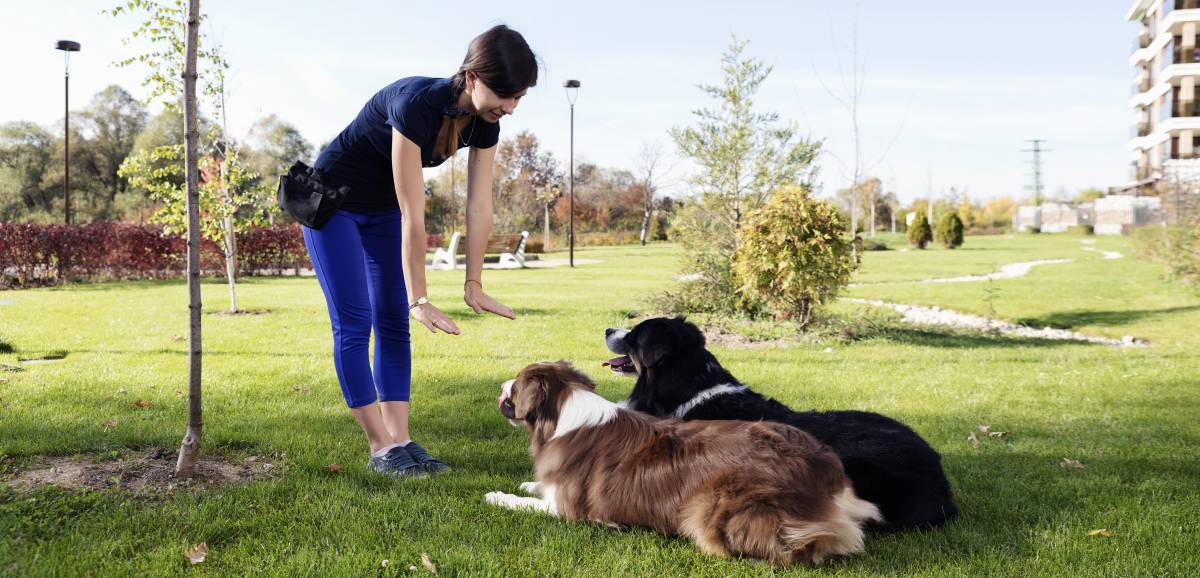
Dog training 101: How to train your dog
Read more

Tips for training an older dog
Read more

Your ultimate guide to dog care
Read more
Related price guides
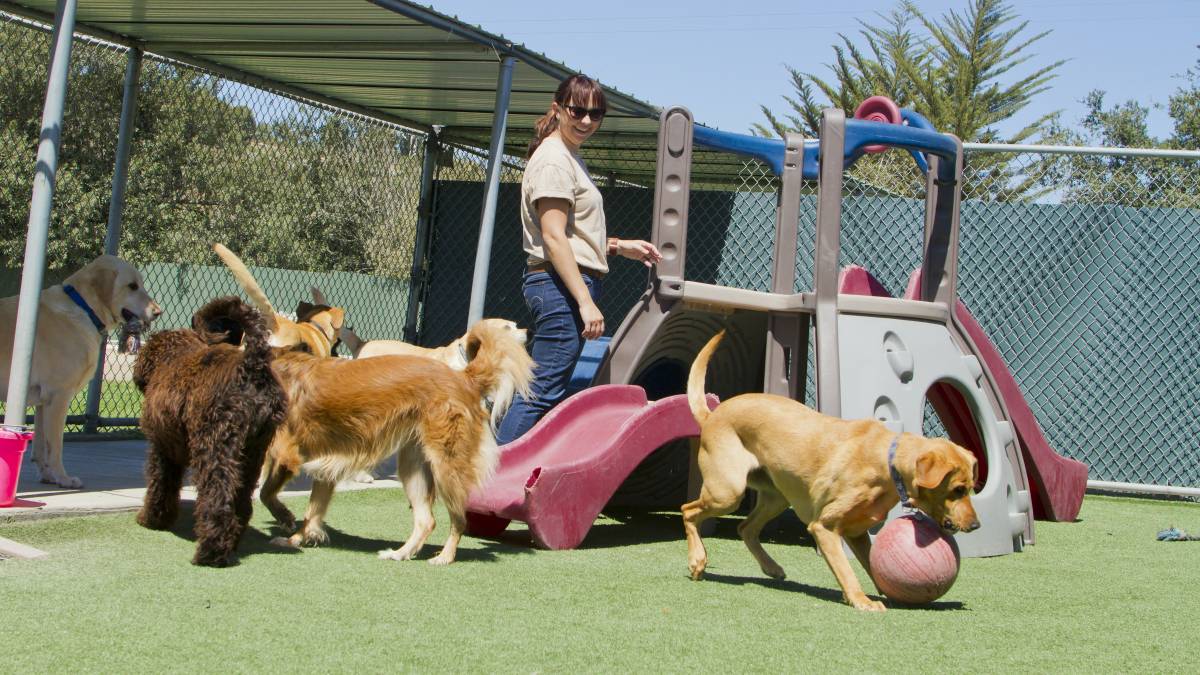
How much does doggy day care cost?
Read more
